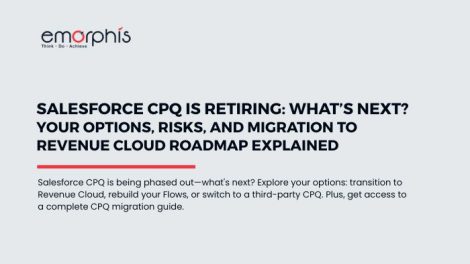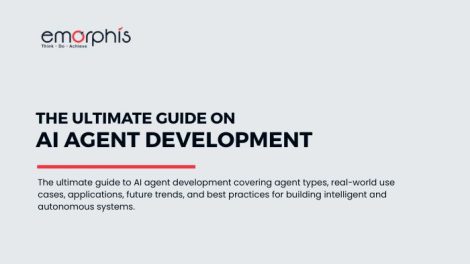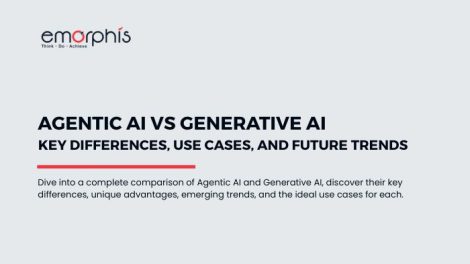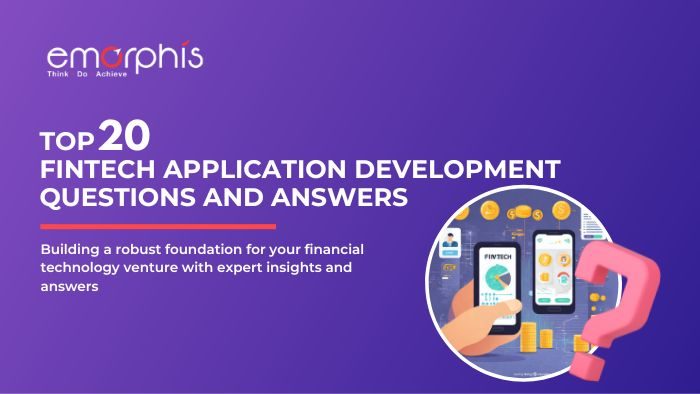In the era of digital transformation, Artificial Intelligence (AI) has become a key driver of innovation, with Generative AI emerging as a groundbreaking subset. Generative AI refers to the type of artificial intelligence that is capable of creating content from scratch. It’s like having an AI that doesn’t just learn but also creates - be it a piece of text, an image, or even a piece of music. The importance of Generative AI is growing as it opens up new possibilities for automation and personalization in various sectors.
One company that recognizes the potential of Generative AI is Salesforce, a global leader in Customer Relationship Management (CRM). Salesforce has always been at the forefront of integrating cutting-edge technology to enhance customer experiences and drive business growth. Recognizing the transformative potential of Generative AI, Salesforce has made a strategic move into this space. This foray marks Salesforce’s commitment to staying ahead of the curve and shaping the future of CRM with advanced AI capabilities.
In the next section, we will delve deeper into why Salesforce is investing in Generative AI and how it stands to revolutionize the CRM industry.
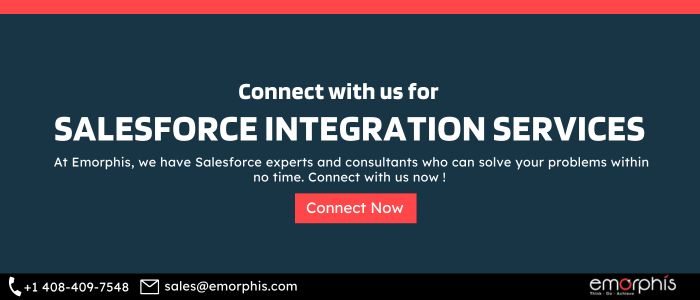
Why Salesforce is Investing in Generative AI?
Salesforce, a global leader in CRM, has recognized the transformative potential of Generative AI and is making significant investments in this space. The reasons behind Salesforce’s investment in AI are manifold and strategic.
Firstly, Generative AI is not just a technological advancement; it’s a paradigm shift that allows for the creation of content from scratch. This opens up new avenues for automation and personalization, which are key to enhancing customer experiences and driving business growth.
Secondly, Salesforce’s investment in Generative AI aligns with its commitment to innovation. Salesforce Ventures has launched a $250 million fund dedicated to investing in generative AI startups. This fund has already invested in several top AI companies, including You.com, Anthropic, Cohere, and Hearth. By fostering an ecosystem of innovative startups, Salesforce is not only fueling the development of generative AI but also ensuring that it stays at the forefront of this technological revolution.
The potential benefits and impact on the CRM industry are significant. With generative AI, Salesforce can offer more personalized and efficient services to its customers. For instance, generative AI can craft personalized emails for salespeople or generate specific responses for customer service professionals. This not only enhances the customer experience but also increases the productivity of employees.
Overall, Salesforce actively channels its strategic investment into Generative AI, with the purpose of unleashing this powerful technology to spearhead a revolutionary transformation within the CRM industry. In the next section, we will delve deeper into Salesforce’s first generative AI for CRM - Einstein GPT.
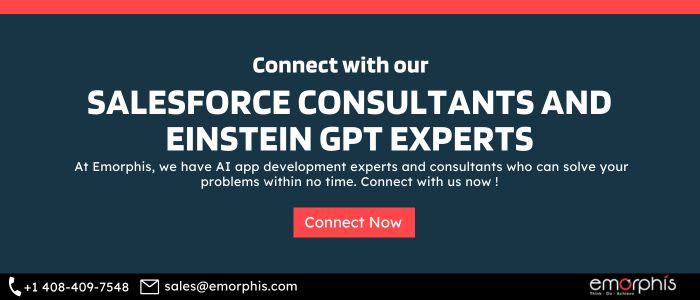
Unveiling Salesforce’s Generative AI - Einstein GPT
Einstein GPT is a robust AI solution that seamlessly integrates both public and private AI models with CRM data. This integration empowers users to pose natural-language inquiries directly within the Salesforce CRM. The outcome is content generated by AI that dynamically evolves in response to shifting customer data and requirements. Consequently, this capability offers substantial time savings to users by eliminating the need for manual content creation.
As an example, Einstein GPT is capable of producing individualized emails that salespeople can dispatch to their clients, formulating precise responses to expedite customer service professionals in addressing inquiries, crafting focused content to enhance campaign response rates for marketers, and even automatically generating code for developers.
Einstein GPT infuses Salesforce’s private AI models with generative AI technology from an ecosystem of partners and real-time data from the Salesforce Data Cloud.
Using Einstein GPT, customers have the option to link their data to OpenAI's cutting-edge AI models effortlessly. They can either opt for OpenAI's predefined models or select their preferred external model, enabling them to employ natural-language prompts seamlessly within their Salesforce CRM. This empowers them to create content that dynamically adjusts to evolving customer information and requirements in real time.
Overall, Salesforce’s Einstein GPT is a game-changer in the realm of CRM. It brings the power of generative AI directly into the hands of users, enabling them to deliver more personalized and efficient services. In the next section, we will explore the advantages and applications of Einstein GPT.
Advantages and Applications
The benefits of Salesforce Generative AI are manifold and transformative. Einstein GPT, Salesforce’s generative AI, revolutionizes the customer experience. This is by bringing AI-generated content to every sales, service, marketing, commerce, and IT interaction.
One of the key advantages of Einstein GPT is its ability to craft personalized content. For instance, it can generate personalized emails for salespeople. This not only saves time but also ensures that each customer receives unique and personalized communication. This level of personalization can significantly enhance the customer experience and increase customer loyalty.
Einstein GPT also provides specific responses for customer service professionals. By tailoring responses to individual queries, it ensures the delivery of precise, pertinent information to customers. Consequently, this refinement can significantly enhance customer service efficiency and ultimately boost customer satisfaction levels.
For marketers, Einstein GPT can generate targeted content. Additionally, crafting content customized to individual customer preferences and behavior enhances marketing campaign effectiveness, hence leading to higher conversion rates.
Developers also stand to benefit from Einstein GPT. With the ability to auto-generate code, it accelerates the development process. Thus enabling developers to concentrate on more intricate tasks.
In conclusion, Salesforce’s Generative AI offers numerous benefits that can revolutionize various aspects of CRM. In the next section, we will discuss Salesforce’s collaboration with OpenAI.
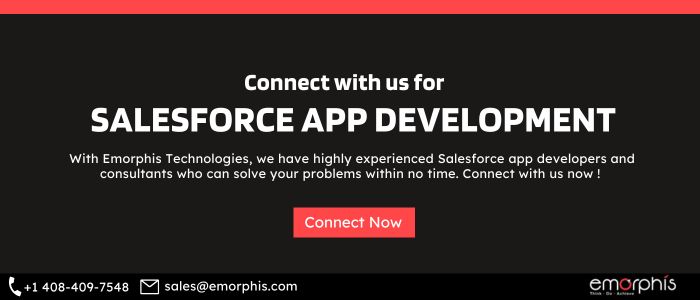
Collaboration with OpenAI
A key aspect of Salesforce’s foray into Generative AI is its collaboration with OpenAI. The Salesforce and OpenAI integration is a strategic move that combines the best of both worlds to offer ready-to-use generative AI capabilities.
Salesforce is integrating Einstein GPT with OpenAI’s enterprise-grade ChatGPT technology.
This integration merges ChatGPT technology with Salesforce's proprietary AI models. Customers have the option to link their data to OpenAI's AI models or select an external model, enabling the utilization of natural language prompts directly within Salesforce CRM for the creation of flexible content that remains up-to-date in real time according to changing customer information.
This collaboration allows Salesforce to deliver relevant and trusted AI-generated content across every Salesforce cloud, making every employee more productive and every customer experience better.
As an illustration, Einstein GPT can produce personalized emails, enabling salespeople to send tailored messages to customers. It can also generate precise responses to expedite customer service professionals in addressing inquiries promptly. For marketers, it has the capability to create focused content to boost campaign response rates. Additionally, it can auto-generate code to assist developers in their coding tasks.
“We’re excited to apply the power of OpenAI’s technology to CRM,” said Sam Altman, CEO of OpenAI. This statement underscores the significance of this collaboration and the transformative potential it holds for the CRM industry.
In conclusion, the integration of Salesforce’s Einstein GPT with OpenAI not only enhances the capabilities of Salesforce’s CRM platform but also paves the way for a new era of AI-powered CRM. In the next section, we will discuss how Salesforce ensures trust and data security in its Generative AI.
Trust and Data Security
In the realm of Generative AI, data security is of paramount importance. As AI models leverage customer and company data to enrich and personalize the results, it’s crucial to trust how that data is being used. Salesforce, recognizing this need, has placed a strong emphasis on ensuring data security in Salesforce’s Generative AI.
Salesforce has introduced the Einstein Trust Layer, a secure AI architecture natively built into the Salesforce Platform. Designed for enterprise security standards, the Einstein Trust Layer allows teams to benefit from generative AI without compromising their customer data.
The Einstein Trust Layer is a sequence of gateways and retrieval systems that ground your prompts in customer data while mitigating risk. It allows you to responsibly ground all of your prompts in customer data and mask that data when the prompt is shared with Large Language Models. With Salesforce’s Zero Retention architecture, none of your data is stored outside of Salesforce.
Moreover, Salesforce ensures that your data is never stored outside of Salesforce. Whether using Salesforce-hosted models or external models that are part of their Shared Trust Boundary, like OpenAI, no context is stored. The large language model forgets both the prompt and the output as soon as the output is processed.
In conclusion, Salesforce’s Generative AI not only offers advanced capabilities but also ensures robust data security. In the next section, we will discuss the implications of Generative AI for Salesforce developers.

Implications for Salesforce Developers
Generative AI is not just a technological advancement; it’s a paradigm shift that offers Salesforce Developers an unprecedented opportunity to redefine solution design for their clients or organizations. The impact of Generative AI on Salesforce Developers is profound, as it allows them to expedite their development process.
For instance, Generative AI can automate content creation for customer interactions, chatbots, personalized marketing campaigns, and more. It can also generate functional code snippets, templates, or application scaffolding, enabling developers to swiftly prototype new ideas. This leaves room for developers to focus on the more strategic and creative aspects of application building.
Moreover, Generative AI can improve user experiences by automating the creation of visual assets for applications, resulting in dynamic and personalized imagery, and compelling visuals. This technology can be leveraged to build applications that cater to the unique needs of your users and clients.
Conclusion
In conclusion, Salesforce’s foray into Generative AI marks a significant milestone in the CRM industry. From revolutionizing customer experience to reshaping how developers design solutions, the implications are far-reaching.
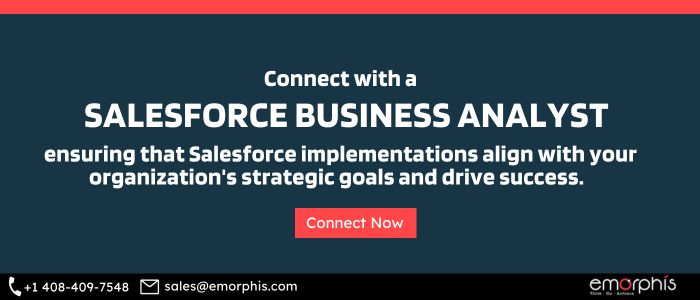
The launch of Einstein GPT, the first generative AI for CRM, has set a new standard for AI-generated content in every sales, service, marketing, commerce, and IT interaction. With its integration with OpenAI, Salesforce is poised to offer ready-to-use generative AI capabilities that will undoubtedly have a lasting impact on the industry.
As we look towards the future, the potential of Salesforce’s Generative AI is immense. It promises not only to enhance the work developers are doing today but also to shape the future of the CRM industry. As developers continue to explore and harness this technology, we can expect to see more innovative solutions that push the boundaries of what’s possible.
Before you go, take a quick look at one more article about Salesforce Einstein GPT – The World’s First Generative AI for CRM
Resources
- https://www.salesforce.com/news/stories/generative-ai-investing/
- https://www.salesforce.com/news/press-releases/2023/03/07/einstein-generative-ai/
- https://www.salesforceben.com/the-definitive-guide-to-einstein-gpt/
- https://www.datanami.com/2023/03/07/salesforce-goes-all-in-on-generative-ai-with-einstein-gpt-integration-with-openai/
- https://www.salesforce.com/blog/the-potential-of-generative-ai-for-salesforce-developers/




